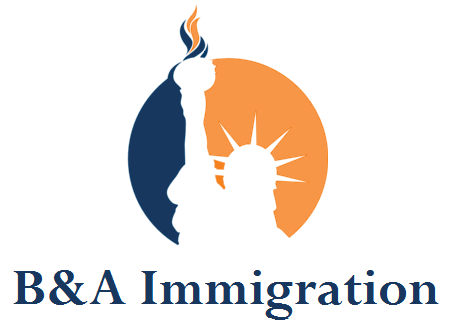Our firm warns clients of the ambiguity that surrounds the L-1B visa. The way that US Citizenship and Immigration Services (USCIS) interprets “specialized knowledge” has been somewhat inconsistent, leading to burdensome Requests for Evidence and high denial rates.
Recent L-1B Policy Memorandum
USCIS recently released a policy memorandum on August 17, 2015, on L-1B Adjudications. It is intended as a guidance by USCIS in adjudicating L-1B petitions (filed on or after August 31, 2015), specifically clarifying how L-1B employers may demonstrate that an employee possesses specialized knowledge.
What is the Purpose of an L-1B Visa?
As stated in the memorandum:
“Congress created the L-1B classification so that multinational companies could more effectively transfer foreign employees with specialized knowledge to their U.S. operations, enhancing such companies’ ability to leverage their workforces. Employees who work in any industry and serve in any type of position may be classified as L-1B nonimmigrants, so long as the position described in the L-1B petition requires specialized knowledge and the beneficiary is found to possess such knowledge. Creation of the program reflected Congress’ concerns with meeting the workforce needs of multinational employers operating in an increasingly global marketplace...”
Statutory Law and Regulations
Under the Immigration and Nationality Act (INA), a beneficiary is deemed to have specialized knowledge if he or she has: (1) a “special” knowledge of the company product and its application in international markets; or (2) an “advanced” level of knowledge of the processes and procedures of the company. INA 214(c)(2)(B).
The corresponding Code of Federal Regulations (CFR) similarly defines specialized knowledge in terms of “special” or “advanced” knowledge: [S]pecial knowledge possessed by an individual of the petitioning organization’s product, service, research, equipment, techniques, management, or other interests and its application in international markets, or an advanced level of knowledge or expertise in the organization’s processes and procedures. 8 CFR 214.2(l)(1)(ii)(D).
What does the new Memorandum say on Specialized Knowledge?
In the memorandum, USCIS notes that “special” and “advanced” are not defined under the statute or regulations. They apply the dictionary definition of these words to the statutory and regulatory text, so that an employee seeking L-1B classification should possess:
Special: knowledge of the petitioning organization’s product, service, research, equipment, techniques, management, or other interests and its application in international markets that is distinct or uncommon in comparison to that generally found in the particular industry.
Advanced: Advanced knowledge or expertise in the petitioning organization’s specific processes and procedures that is not commonly found in the relevant industry and is greatly developed or further along in progress, complexity and understanding than that generally found within the employer.
An employee's knowledge need not be proprietary in nature or narrowly held within the petitioning organization to be considered specialized. It should be noted, however, that if the organization hires a number of employees with the alleged specialized knowledge, USCIS are going to question whether it is indeed “specialized.”
USCIS has further identified a non-exhaustive list of factors that adjudicating officers should consider in determining whether the employee has specialized knowledge:
The beneficiary possesses knowledge of foreign operating conditions that is of significant value to the petitioning organization’s U.S. Operations;
The beneficiary has been employed abroad in a capacity involving assignments that have significantly enhanced the employer’s productivity, competitiveness, image, or financial position;
The beneficiary’s claimed specialized knowledge normally can be gained only through prior experience with the petitioning organization;
The beneficiary possesses knowledge of a product or process that cannot be easily transferred or taught to another individual without significant economic cost or inconvenience (because, for example, such knowledge may require substantial training, work experience, or education);
The beneficiary has knowledge of a process or a product that either is sophisticated or complex, or of a highly technical nature, although not necessarily unique to the petitioning organization;
The beneficiary possesses knowledge that is particularly beneficial to the petitioning organization’s competitiveness in the marketplace.
Off-site Employment and L-1B Extensions
The memorandum refers to Off-site L-1B Employment. In cases where the employee will be based off-site, the employer must demonstrate that it retains the right to control the employee and that the employee will be using the specialized knowledge detailed in the petition.
In L-1B Extension cases, USCIS officers should re-examine a finding of L-1B eligibility only where it is determined that: (1) there was a material error with regard to the previous approval for L-1B classification; (2) there has been a substantial change in circumstances since that approval; or (3) there is new material information that adversely impacts the petitioner’s or beneficiary’s eligibility.
Conclusion
The memorandum is clearly a step in the right direction. The fact of the matter is, however, that it is futile how much emphasis the memorandum places on the importance of providing employers with the opportunity to transfer specialized knowledge employees, in order to create growth and competitiveness in the U.S. Market. Only time will tell. It will be a happy day when we are no longer faced with such convoluted Requests For Evidence and high denial rates.
If you have any questions regarding the L-1B visa, or alternatives, please contact our office on +44 (0)203 102 7966
